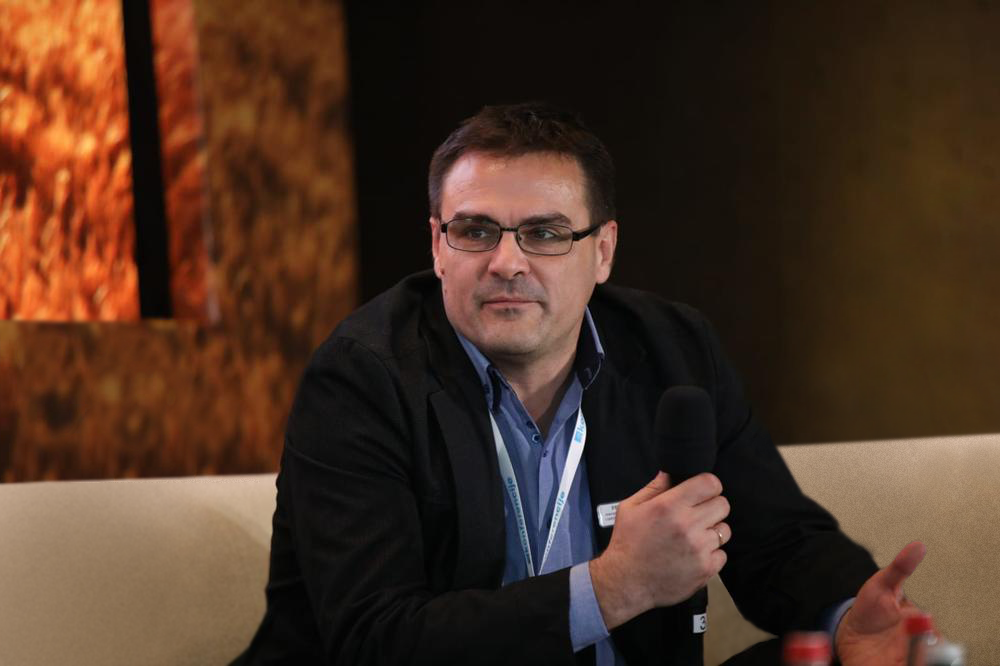The Dijamant Company is proud of the fact that it uses its expired products as organic waste, namely as a raw material for energy production in its biogas-operated plants.
Apart from the quality of its products, Dijamant also cares about environmental protection. In his interview for Diplomacy&Commerce magazine, Predrag Nenin, Quality and Environmental Manager at Dijamant, explains how the company does that.

In what ways does Dijamant contribute to environmental protection?
Dijamant has harmonized all its business processes with the relevant legal regulations relating to environmental protection. All emissions from the factory are completely within the prescribed limits, and we are striving to reduce the amount of pollutants as much as possible or eliminate them altogether whenever possible. This goal is an integral part of Dijamant’s business strategy and our responsible attitude towards the community in which we operate. We are continuously working to increase the use of energy from renewable sources, as well as to reduce the amount of packaging per unit of product, using recyclable materials.
In the production processes and processing industry in general, it is very important to generate as little waste as possible and to manage it properly, in order to produce as many materials that have use-value.
To reduce the release of pollutants into the environment as much as possible, we, at Dijamant, use an electrostatic precipitator system for purifying flue gas from powdery substances in boilers. In practice, fat from the production process is the dominant pollutant in our industry in technological (process) water. This water is treated so that, in addition to obtaining wastewater of legally acceptable parameters, the separated fat is placed on the market as biomass for the generation of biogas and electricity.
The Dijamant Company is proud of the fact that it uses its expired products as organic waste, namely as a raw material for energy production in its biogas-operated plants. Furthermore, all our partners involved in the production process must possess the appropriate certificates, i.e. act responsibly towards the environment so that everybody in this interdependent circle operates in accordance with environmental protection regulations.
Which environmental parameters are monitored by the monitoring system on Dijamant’s premises?
Monitoring of emissions of undesirable substances is an important element of prevention and reduction of pollution generated by industrial plants, where the choice of parameters to be monitored depends directly on the factory’s activities. As far as Dijamant goes, our services are conscientiously and responsibly are measuring emissions in the air and water, in cooperation with the relevant institutions and inspection teams.
“Sunflower husk, which is also one of our products, is classified as solid biomass with a low content of nitrogen and sulfur, which makes it largely environmentally friendly”
Safe management of waste and chemicals is required at all production stages to prevent the release of harmful substances into the environment. We implement all prescribed measures for efficient disposal, transport and storage of waste, as well as for systematic monitoring and classification of chemicals.
Dijamant encourages the use of renewable energy sources, prevention and controlling the pollution of all ecosystems. What renewable energy sources do you use?
Sunflower husk, which is also one of our products, is classified as solid biomass with a low content of nitrogen and sulfur, which makes it largely environmentally friendly. Sunflower husk has a high caloric value and is used in Dijamant as an energy source for the production of thermal energy, as well as for the production of organic fertilizers. Dijamant has been using sunflower husk boilers for over 40 years, thanks to which the company produces more than 85% of the thermal energy it uses in production from a renewable energy source. By utilizing renewable energy sources, we not only minimize costs but also add value to our business, because we ensure a minimum level of emissions of harmful substances into the air.
What do you think is the most important aspect of the implementation of the Green Agenda in Vojvodina?
Infamously, Vojvodina is one of the regions with the smallest forest territory in Europe, with less than 7% of its size covered in forests. The Green Agenda aims to encourage the ecological transformation of the entire economy and society, and our task, both as companies and individuals, is to start locally. I believe that the preservation of biodiversity, the prevention of the so-called agri-desert, as a result of intensive agricultural activities, as well as increasing the percentage of afforestation of Vojvodina to at least 30 of the province’s territory, are crucial for nature’s protection and preservation.